GlassThought.com
About
Hello! Welcome to my public vault/website.
I use this place to clarify my thoughts, and share my notes on various topics. The areas of interest to me include:
- Philosophy
- Personal Development
- And of course Software Development.
Highlighted notes
Have clear goals
Having clear goals is vital for steering your life.
Goals determine the direction of where you want to go. Hence, establishing clear goals is to establish an aim, the direction of where you want to go.
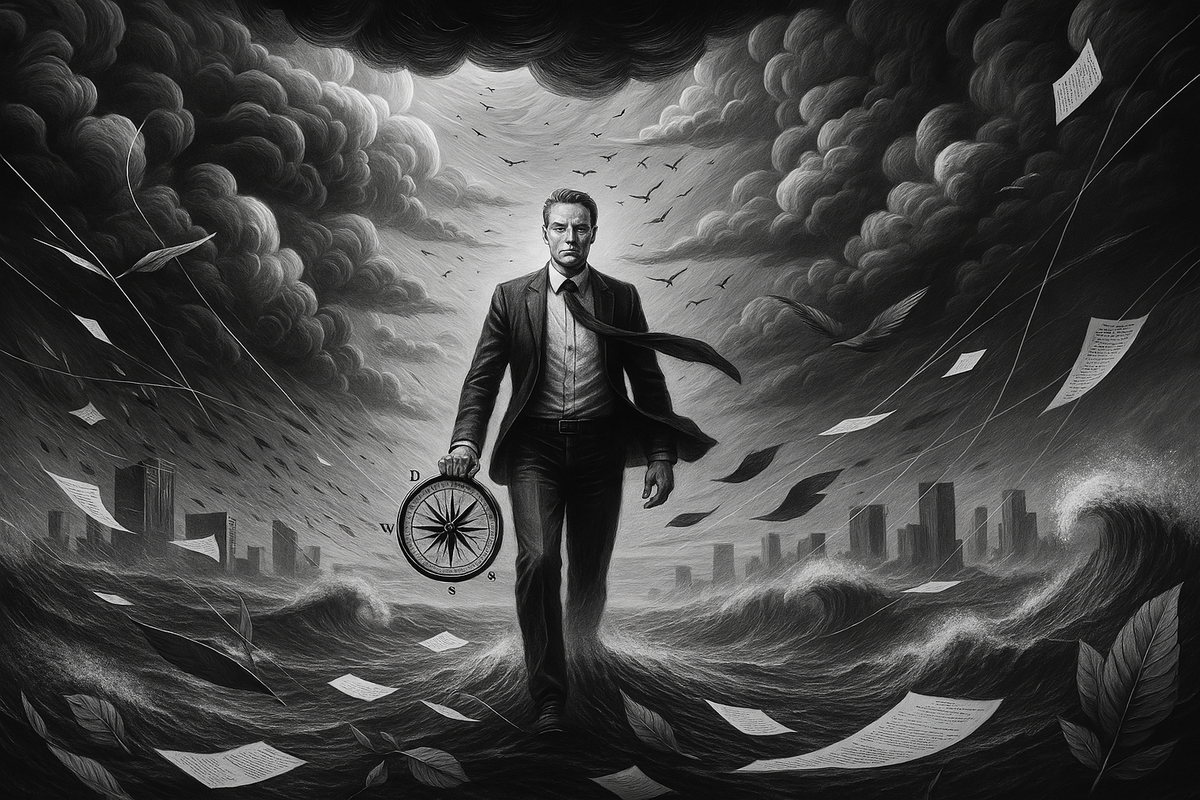
Image Description
Hyper successful people advocate for goal clarity.
Both 1) hyper successful people themselves and 2) established gurus of success training, state: importance of goal clarity. Its not for nothing that we see a pattern of advocating for goal clarity by Ray Dalio in his 5 steps to get what you want stating as his first step to have clear goals. Or in Think and Grow Rich: Six Steps outlined by Napoleon-Hill stating as first step to have exact amount of money to acquire. Or by Arnold Schwarzenegger stating First Rule is Trust Yourself: Figure Out Who You Want to Be.
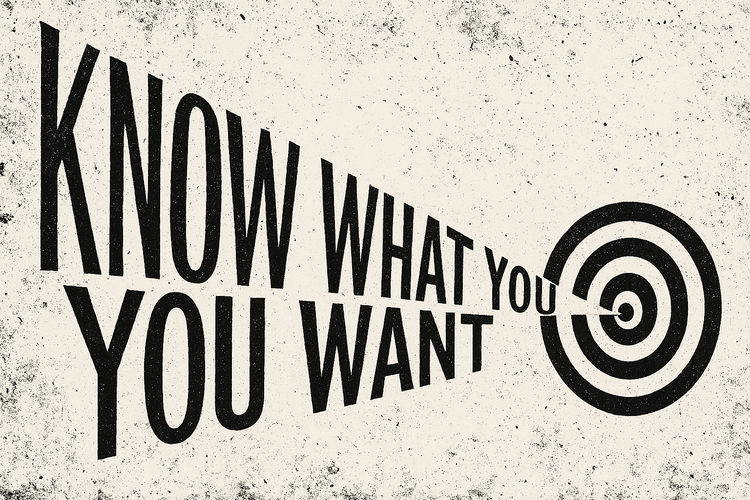
"Life favors the specific ask and punishes the vague wish" - Tim-Ferris
Furthermore, We can logically presume that our chances of arriving of where we want to be are orders of magnitude higher if we have a clear idea of where we want to go. (Dont be Aimless). And put our energy and focus towards that direction.
Genie Laborde way: Have clear outcome
too many nested note refs
Arnold: who do you want to become
too many nested note refs
Tim Ferris way: What would excite me.
Tim-Ferris writes that asking a question “What do you want?” is not a good starting point as its too imprecise. He states that “What are my goals?” also falls short of the mark. The question he suggests is “What would excite me?”
Establish the WHY
Why do you want become the person that you want to become.
Why do you want to achieve your SFH-Outcome (See, Feel, Hear).
Why you will prioritize this purpose above other distractions to laser focus on the path to getting there.
Coming up with Magnetic goals
too many nested note refs
With that said while clear goals are important, they are the first step. Just having goals and dreams is like believing in Law of Attraction, sitting there in the same spot with your calibrated compass of clear direction. Not making any progress on the actions of actually climbing up the mountain where the compass is pointing towards.
Clear goal is the first step.
Necessary, Vital and... not enough by itself.
Hence, once you have determined the clear goal and ready to commit, you have determined the direction of the mountain top of the current clear goal. It's time to design your systems and habits to align with that goal, so that your habits move you closer towards the peak of the mountain every day.
Systems & Habits determine the direction of where you are going. Goals are the thoughts and words that allow us to tailor our actions and habits to align us in the direction of where we want to be. Hyper successful people advocate for crisp goal clarity as first step, and then developing systems to achieve them.
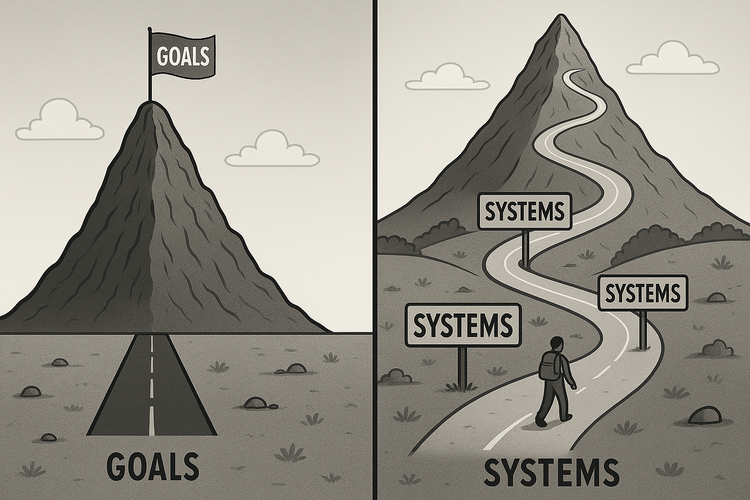
Once you have calibrated the Direction, Then focus on Systems/Habits
Goals are important first step but there are Problems with Goals without systems. Hence, we will aim to focus on systems after having a calibrated compass to point us towards where we want to go.
Goals are about the results you want to achieve.
Systems are about the processes that lead to those results.

Use goals to set direction.
Rely on systems to make progress.
Goals and Systems Simplified
Goals: Your Destination
- Define what you want to achieve.
- Example: "Lose 20 pounds."
Systems: Your Path
- The daily habits that get you to your goal.
- Example: "Daily healthy eating and exercise."
Key Insights:
- Consistency beats intensity: Focus on small, regular actions.
- Enjoy the journey: Process matters more than the end result.
- Be adaptable: Adjust your habits as needed.
- Identity shift: Shift your identity to someone that is aligned with habits that lead to your goal.
Action Steps:
- Break goals into small habits.
- Track your habits.
- Review and adjust regularly.
- Patience is key.
Bottom Line
Goals set the direction; systems ensure progress. Focus on building and maintaining effective systems.
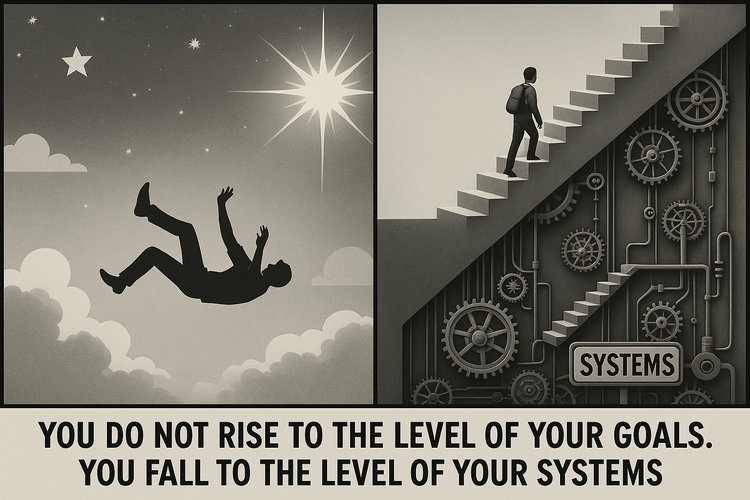
You do not rise to the level of your goals.
You fall to the level of your systems.
The Power of Systems Over Goals
The Essence of the Principle
- Goals: The targets we aim to hit.
- Example: "Win a marathon."
- Systems: The day-to-day behaviors and routines that define our progress.
- Example: "Consistent training schedule and nutrition plan."
Core Insights:
- Achievement mirrors your systems, not your ambitions: Success is less about the goals you set and more about the systems you follow.
- Build robust systems for inevitable success: The strength of your daily practices determines your level of achievement.
- Focus on what you can control: Concentrate on your actions and behaviors, which are within your control, rather than on outcomes, which often aren't.
- Adaptability within systems leads to growth: Systems that allow for feedback and adjustment are more effective in reaching long-term success.
Developing Strong Systems:
- Map out daily and weekly routines that align with your ultimate objectives.
- Implement consistent habits that are directly linked to your areas of focus.
- Regularly review and refine your systems based on outcomes and new insights.
- Embrace an identity that reflects the processes of your systems.
The Fundamental Truth
Your level of success is a reflection of the systems you implement and maintain, not the height of your goals. By focusing on building effective systems, you ensure continuous progress and long-term achievement.
Related
too many nested note refs
too many nested note refs
Songs
too many nested note refs
too many nested note refs
Related
Quotes
“The problem happens when we have multiple desires. When we have fuzzy desires. When we want to do ten different things and we’re not clear about which is the one we care about.” - Naval Ravikant
If you do not change direction. You may end up where you are heading -- Lao-Tzu
Our minds are gyrocompasses of our lives. - Earl-Nightingale/youtube-ref
Alice: “Would you tell me, please, which way I ought to go from here?”
The Cheshire Cat: “That depends a good deal on where you want to get to.”
Alice: “I don’t much care where.”
The Cheshire Cat: “Then it doesn’t much matter which way you go.”
Alice: “…so long as I get somewhere.”
The Cheshire Cat: “Oh, you’re sure to do that, if only you walk long enough.” - Alice in Wonderland Lewis Carroll
“If you don't know what you want, you end up with a lot you don't.” - Chuck-Palahniuk, Fight Club
The world turns aside to let any man pass who knows where he is going. - Epictetus
A man should conceive of a legitimate purpose in his heart, and set out to accomplish it... He should make this purpose his supreme duty, and should devote himself to its attainment, not allowing his thoughts to wonder away into ephemeral fancies, longings and imaginings. This is the road to self-control and true concentration of thought. - rel.from (Private):Book: As a Man Thinketh by James-Allen
Songs
too many nested note refs
too many nested note refs
too many nested note refs
too many nested note refs
Related
Dont be Aimless
Dont be Aimless
Be-proactive: response-ability-freedom-to-choose
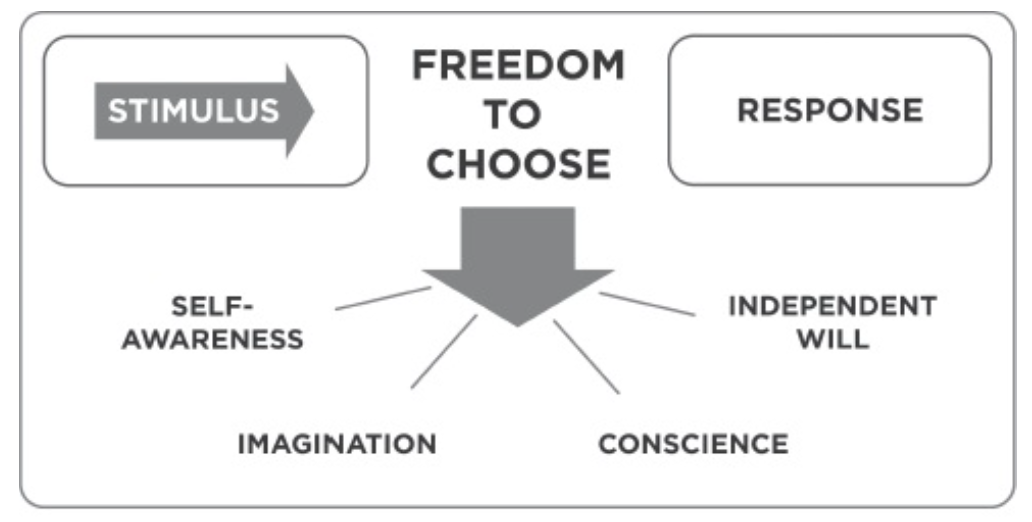
Look at the word responsibility—“response-ability”—the ability to choose your response. Highly proactive people recognize that responsibility. They do not blame circumstances, conditions, or conditioning for their behavior. Their behavior is a product of their own conscious choice, based on values, rather than a product of their conditions, based on feeling.
Instead of saying:
That [frustrated/annoyed/angered/...] me.
OR I am [frustrated/annoyed/angered/...].
Instead State: I CHOOSE to be [xxx/yyy] by this.
Related
Dont worry
We don't know enough to worry
“Worry is preposterous; we don’t know enough to worry.” - Wei-Boyang
“Don't worry. You don't know enough to worry. That's God's truth. Who do you think you are that you should worry, for crying out loud? It's a total waste of time. It presupposes such a knowledge of the situation that it is in fact a form of hubris.” - Terence-McKenna

too many nested note refs
too many nested note refs
Combatting elevated Stress:
Combatting Elevated Stress
Breathing
Breathing Techniques
too many nested note refs
Meditation
Meditation
too many nested note refs
Working out
Working out
too many nested note refs
Natural Supplements
Natural Supplements
too many nested note refs
Zoom Out
Zoom out
too many nested note refs
Philosophy
Realizing stress is a form of Fear
Realizing stress is a form of fear, admitting to yourself what you thought you were afraid of and working through that fear can be quite helpful.
too many nested note refs
Stoic Philosophy
too many nested note refs
Not Public
If you can't establish confidence and there is something that you do "need to be" worried about, THEN Instead Be:Concerned about it, and take action towards resolution rather than be worried. Dont Waste Time with worrying.
Counter is:Dont worry/Anti Worry Mindset
Definition: Spinning thoughts, that give you negative feeling and produce no action.
Worry is fear.
Worry is an Afraid emotion (Emotions Table), a form of fear.
too many nested note refs
Worry is Absurd (if you think of all that can happen)
Nothing but what you get from first impressions. That someone has insulted you, for instance. That -but not that it's done you any harm. The fact that my son is sick -that I can see. But "that he might die of it", no. Stick with first impressions. Don't extrapolate. And nothing can happen to you.
Or extrapolate. From a knowledge of all that can happen in the world. - Marcus-Aurelius
If you are going to worry than why limit yourself. Worry about everything that can happen. Then start worrying about a meteor that could fall tomorrow that hasn't been announced to the public.
Worry is weakness
too many nested note refs
Worry is weakness that comes up when you lack purpose, combat this by having Clear Goals

Worry is like a rocking chair: it gives you something to do but never gets you anywhere. — Erma Bombeck
Which of you, by being anxious, can add one moment to his lifespan? — Matthew 6:27
If the problem can be solved why worry? If the problem cannot be solved worrying will do you no good. ― Shantideva (Buddhist Monk)
If we are able to overcome our anxieties and forge a fearless attitude towards life, something strange and remarkable can occur—that margin of control over circumstance increases. — Robert Greene
To establish an anti-worry mindset. A mindset to free yourself from useless spinning thoughts that do not produce action. Start with Do: Laser Focus on What You Control (AntiWorry).
Then look at Do: Cultivate Indifference to What Is Outside Your Control (AntiWorry)
Anti-Worry Mindset: Focus On what you control
Songs
too many nested note refs

too many nested note refs
Hence, focus on what you can control. Think about what you can control. Laser focus on variables under your control. Focus on your actions, focus on your inputs into this life, and take the outputs to re-evaluate your input actions.
Control The Type of Information You Intake
It becomes easier to focus on things that are under our control when we filter the type of information coming our way. When we limit the information to Important Relevant Actionable Information (IRA Info), most importantly actionable, then our mind tends to gravitate towards thoughts that are also actionable.
On the opposite end of the spectrum if we take in information that is in-actionable, then we are more likely to have negative thoughts with zero action output == worry. Mainstream media is great example of in-actionable often fear focused information, that is likely to use up thought cycles with no positive outcomes (For more refer to Manufacturing Consent). Hence, in typical situations it's best to be ignorant of such information, the important news of the world will reach you through other people.
IRA Info: Important Relevant Actionable
too many nested note refs
Remember: Do not worry
Remember: If you can do something about a situation, then do not worry about it. Instead, go and enact change. If you cannot do anything, then do not worry about it. Instead, find something that you can change.
Quotes
“The chief task in life is simply this: to identify and separate matters so that I can say clearly to myself which are externals not under my control, and which have to do with the choices I actually control. Where then do I look for good and evil? Not to uncontrollable externals, but within myself to the choices that are my own” - Epictetus
“First understand the do-or-die importance of focus. If you don’t learn to focus, you will have a shallow and unrewarding life without any meaningful achievements. So make it a priority.” — Derek-Sivers
Corollary
Corollary: Do: Cultivate Indifference to What Is Outside Your Control (AntiWorry). To laser focus on what is inside of our control we must cultivate ignorance (ignore) things that our outside of our control.
If you focus on what you control
You train to be in the mindset of doing. The lens you look at the world focuses on things that you can change. And hence your perception of the world becomes that the world (your world) is changing and you see yourself as being able to influence the change.
Focus on your inputs
too many nested note refs
Before Focus: Establish Direction
Before laser focusing on something: make sure to have Clear Goals.
Focus on your Systems
too many nested note refs
Focus on your circle of influence
too many nested note refs
Metadata
Related
Warren Buffet and Bill Gates picked the same word that account for their success: Focus - (ref)
Cultivate Indifference to What Is Outside Your Control
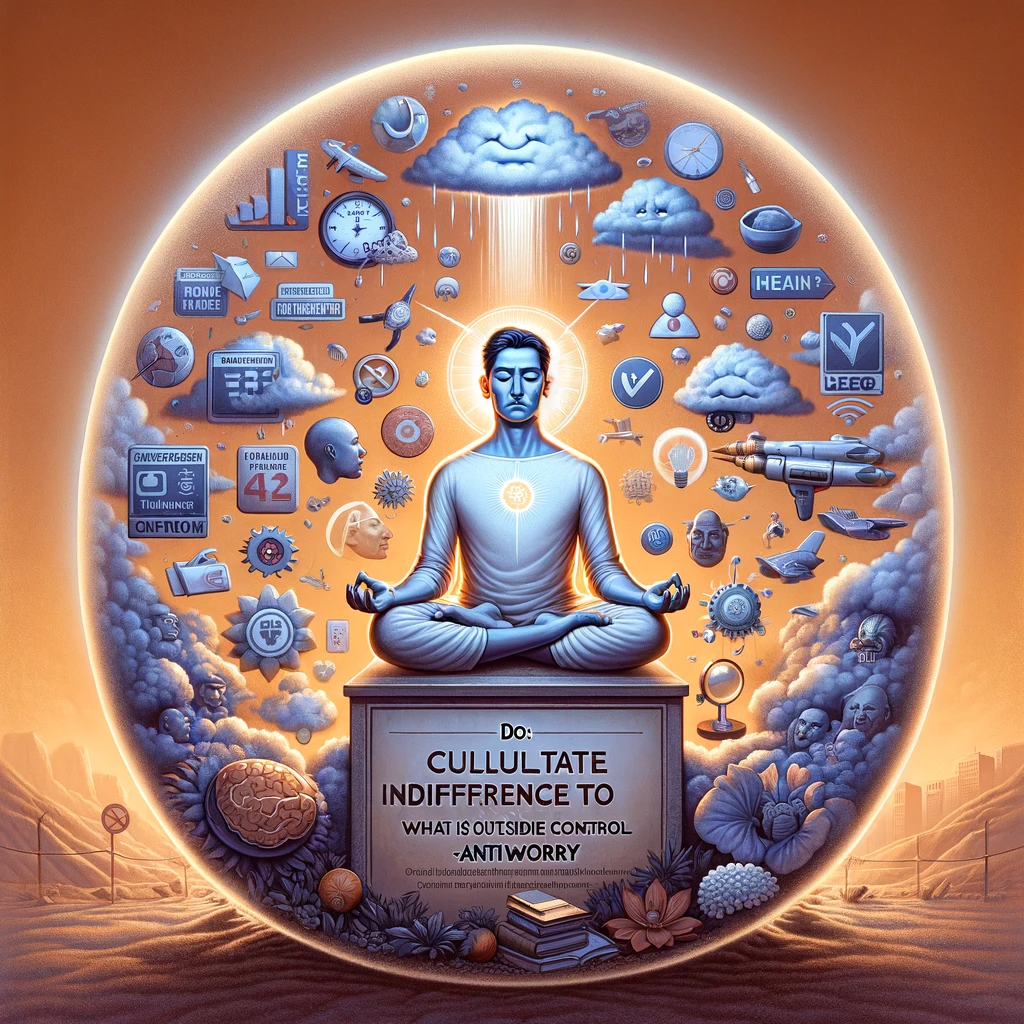
A rational person can find peace by cultivating indifference to things outside of their control. - Naval Ravikant
too many nested note refs
If we don't cultivate indifference/ignorance to things that are outside of our control we are at risk of inviting worry into our life.
If we don't cultivate selective ignorance we are at risk of being dispersed, not being able to produce massive action. Due to not being able to laser focus on things that are within our control.
too many nested note refs
Related
Look at the Nature of It
too many nested note refs
Memento Mori (Remember That you will Die)
too many nested note refs
Metadata
Relationship
If you knew how things would turn out would you worry? The interesting part is that we actually know our future. We will die (Memento Mori (Remember That you will Die)). What happens after death nobody really knows.
Instead
Laser focus ON what you control
Songs
too many nested note refs

If we allow ourselves to focus on variables outside of our control, we take the focus from things we can change. Let me repeat. When you think about things outside of your control, you take resources away from things that can make your life better.
You have a finite amount of time and if you focus on that you cannot change, you steal time away from actions that bring change to your life.
IF: You focus on what you cannot change
THEN: you steal time away, from actions that bring change.
As you focus on what you control, your circle-of-influence (what you control), increases. Inversely if you focus on what you cannot change your circle of influence decreases.
Hence, focus on what you can control. Think about what you can control. Laser focus on variables under your control. Focus on your actions, focus on your inputs into this life, and take the outputs to re-evaluate your input actions.
Control The Type of Information You Intake
It becomes easier to focus on things that are under our control when we filter the type of information coming our way. When we limit the information to Important Relevant Actionable Information (IRA Info), most importantly actionable, then our mind tends to gravitate towards thoughts that are also actionable.
On the opposite end of the spectrum if we take in information that is in-actionable, then we are more likely to have negative thoughts with zero action output == worry. Mainstream media is great example of in-actionable often fear focused information, that is likely to use up thought cycles with no positive outcomes (For more refer to Manufacturing Consent). Hence, in typical situations it's best to be ignorant of such information, the important news of the world will reach you through other people.
IRA Info: Important Relevant Actionable

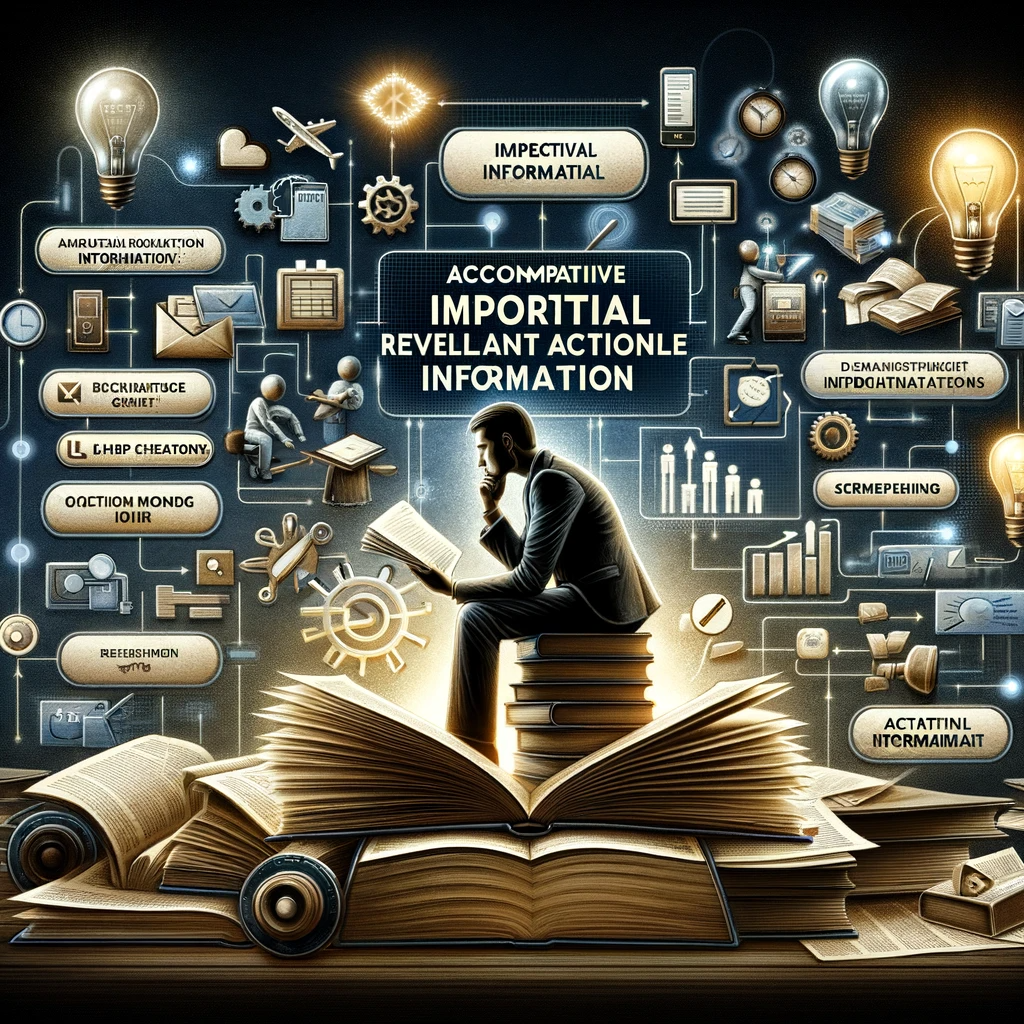
Information must be proportionate to action, particularly habitual consumption of information.
What information consumes is rather obvious: it consumes the attention of its recipients. Hence, a wealth of information creates a poverty of attention and a need to allocate that attention efficiently among the overabundance of information sources that might consume it. — Herbert Simon, recipient of Nobel Memorial Prize in Economics
Wealth of Information --creates--> Poverty of Attention
Most importantly: Information Must be Actionable
too many nested note refs

Quotes
too many nested note refs
I never watch the news and have bought one single newspaper in the last five years...In five years, I haven’t had a single problem due to this selective ignorance. - Tim-Ferris
For actionable information, I consume a maximum of one-third of one industry magazine (Response magazine) and one business magazine (Inc.) per month, for a grand total of approximately four hours/month. That’s it for results-oriented reading. - Tim-Ferris
Lifestyle design is based on massive action—output. Increased output necessitates decreased input.
Most information is time-consuming, negative, irrelevant to your goals, and outside of your influence.
I challenge you to look at whatever you read or watched today and tell me that it wasn’t at least two of the four. - Tim-Ferris
Develop the habit of asking yourself, “Will I definitely use this information for something immediate and important?” It’s not enough to use information for “something”—it needs to be immediate and important. If “no” on either count, don’t consume it. Information is useless if it is not applied to something important or if you will forget it before you have a chance to apply it. - Tim-Ferris
How to Grasp Specific Information
How to Grasp Specific Information: By Tim Ferris
IF task is "how-to" in nature:
THEN: only read autobiographical accounts of “how I did it”.
No speculators
No wannabes
What if you need to learn to do something your friends haven’t done? Like, say, sell a book to the world’s largest publisher as a first-time author? Funny you should ask. There are two approaches I used:
- I picked one book out of dozens based on reader reviews and the fact that the authors had actually done what I wanted to do. If the task is how-to in nature, I only read accounts that are “how I did it” and autobiographical. No speculators or wannabes are worth the time.
- Using the book to generate intelligent and specific questions, I contacted 10 of the top authors and agents in the world via e-mail and phone, with a response rate of 80%. I only read the sections of the book that were relevant to immediate next steps, which took less than two hours. To develop a template e-mail and call script took approximately four hours, and the actual e-mails and phone calls took less than an hour. This personal contact approach is not only more effective and more efficient than all-you-can-eat info buffets, it also provided me with the major league alliances and mentors necessary to sell this book. Rediscover the power of the forgotten skill called “talking.” It works. Once again, less is more. - Tim-Ferris
Important-Relevant-Actionable Information
Important & Relevant & Actionable (IRA Info) is:

Remember: Do not worry
Remember: If you can do something about a situation, then do not worry about it. Instead, go and enact change. If you cannot do anything, then do not worry about it. Instead, find something that you can change.
Quotes
“The chief task in life is simply this: to identify and separate matters so that I can say clearly to myself which are externals not under my control, and which have to do with the choices I actually control. Where then do I look for good and evil? Not to uncontrollable externals, but within myself to the choices that are my own” - Epictetus
“First understand the do-or-die importance of focus. If you don’t learn to focus, you will have a shallow and unrewarding life without any meaningful achievements. So make it a priority.” — Derek-Sivers
Corollary
Corollary: Do: Cultivate Indifference to What Is Outside Your Control (AntiWorry). To laser focus on what is inside of our control we must cultivate ignorance (ignore) things that our outside of our control.
If you focus on what you control
You train to be in the mindset of doing. The lens you look at the world focuses on things that you can change. And hence your perception of the world becomes that the world (your world) is changing and you see yourself as being able to influence the change.
Focus on your inputs
Before Focus: Establish Direction
Before laser focusing on something: make sure to have Clear Goals.
Focus on your Systems
Goals are about the results you want to achieve.
Systems are about the processes that lead to those results.

Use goals to set direction.
Rely on systems to make progress.
Goals and Systems Simplified
Goals: Your Destination
- Define what you want to achieve.
- Example: "Lose 20 pounds."
Systems: Your Path
- The daily habits that get you to your goal.
- Example: "Daily healthy eating and exercise."
Key Insights:
- Consistency beats intensity: Focus on small, regular actions.
- Enjoy the journey: Process matters more than the end result.
- Be adaptable: Adjust your habits as needed.
- Identity shift: Shift your identity to someone that is aligned with habits that lead to your goal.
Action Steps:
- Break goals into small habits.
- Track your habits.
- Review and adjust regularly.
- Patience is key.
Bottom Line
Goals set the direction; systems ensure progress. Focus on building and maintaining effective systems.

You do not rise to the level of your goals.
You fall to the level of your systems.
The Power of Systems Over Goals
The Essence of the Principle
- Goals: The targets we aim to hit.
- Example: "Win a marathon."
- Systems: The day-to-day behaviors and routines that define our progress.
- Example: "Consistent training schedule and nutrition plan."
Core Insights:
- Achievement mirrors your systems, not your ambitions: Success is less about the goals you set and more about the systems you follow.
- Build robust systems for inevitable success: The strength of your daily practices determines your level of achievement.
- Focus on what you can control: Concentrate on your actions and behaviors, which are within your control, rather than on outcomes, which often aren't.
- Adaptability within systems leads to growth: Systems that allow for feedback and adjustment are more effective in reaching long-term success.
Developing Strong Systems:
- Map out daily and weekly routines that align with your ultimate objectives.
- Implement consistent habits that are directly linked to your areas of focus.
- Regularly review and refine your systems based on outcomes and new insights.
- Embrace an identity that reflects the processes of your systems.
The Fundamental Truth
Your level of success is a reflection of the systems you implement and maintain, not the height of your goals. By focusing on building effective systems, you ensure continuous progress and long-term achievement.
Related
too many nested note refs
too many nested note refs
Songs
too many nested note refs
too many nested note refs
Related
Focus on your circle of influence
Proactive people focus their efforts in the Circle of Influence. They work on the things they can do something about. The nature of their energy is positive, enlarging and magnifying, causing their Circle of Influence to increase.
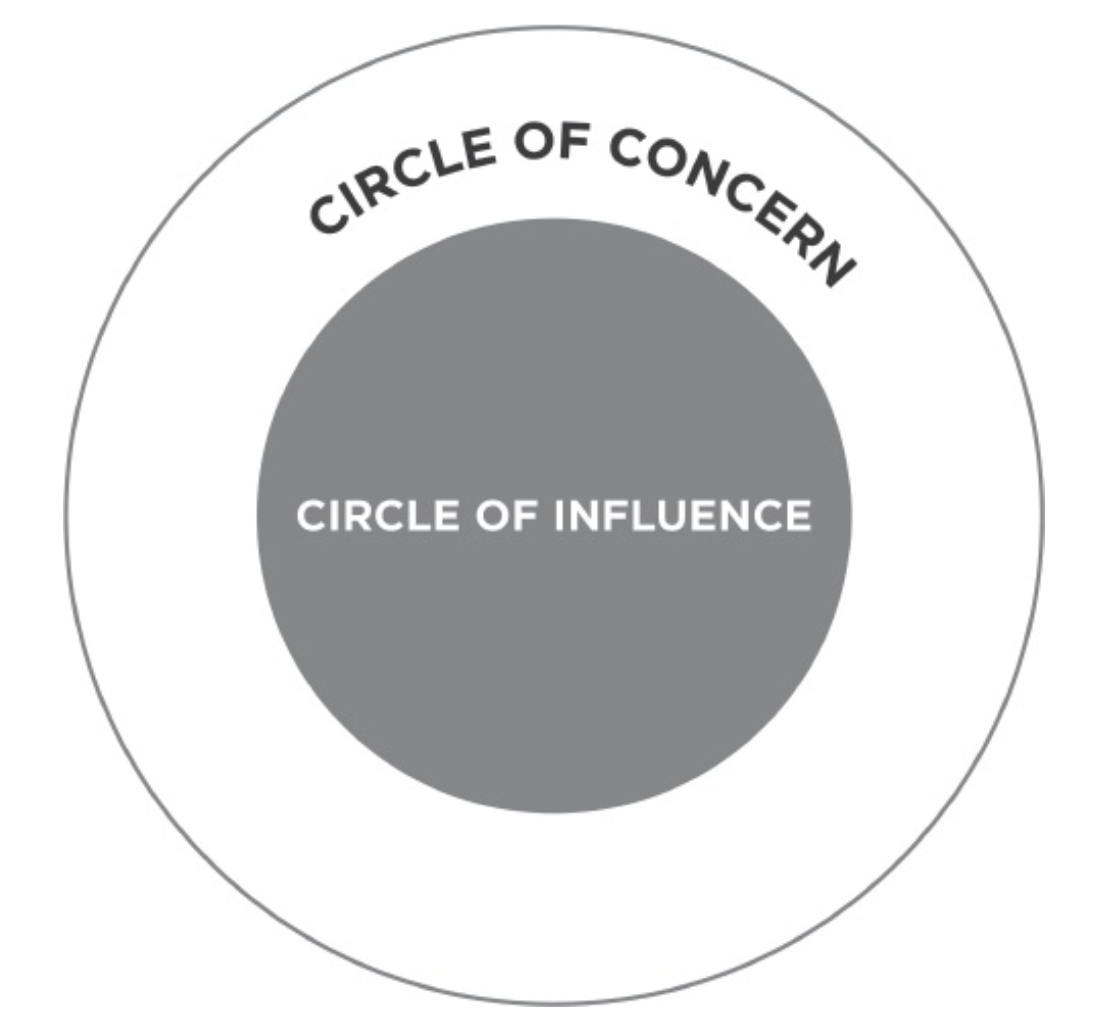
Anytime we think the problem is “out there,” that thought is the problem. We empower what’s out there to control us. The change paradigm is “outside-in”—what’s out there has to change before we can change.
Related Quotes
“The ignorant man’s position and character is this: he never looks to himself for benefit or harm, but to the world outside him. The philosopher’s position and character is that he always look to himself for benefit and harm.” — Epictetus, Enchiridion
God grant me the serenity to accept the things I cannot change, courage to change the things I can change; and wisdom to know the difference. - Serenity Prayer
Related
Related Thoughts
Clean up your room
too many nested note refs
Metadata
Related
Warren Buffet and Bill Gates picked the same word that account for their success: Focus - (ref)
Important Relevant Actionable Information (IRA Info)


Information must be proportionate to action, particularly habitual consumption of information.
What information consumes is rather obvious: it consumes the attention of its recipients. Hence, a wealth of information creates a poverty of attention and a need to allocate that attention efficiently among the overabundance of information sources that might consume it. — Herbert Simon, recipient of Nobel Memorial Prize in Economics
Wealth of Information --creates--> Poverty of Attention
Most importantly: Information Must be Actionable
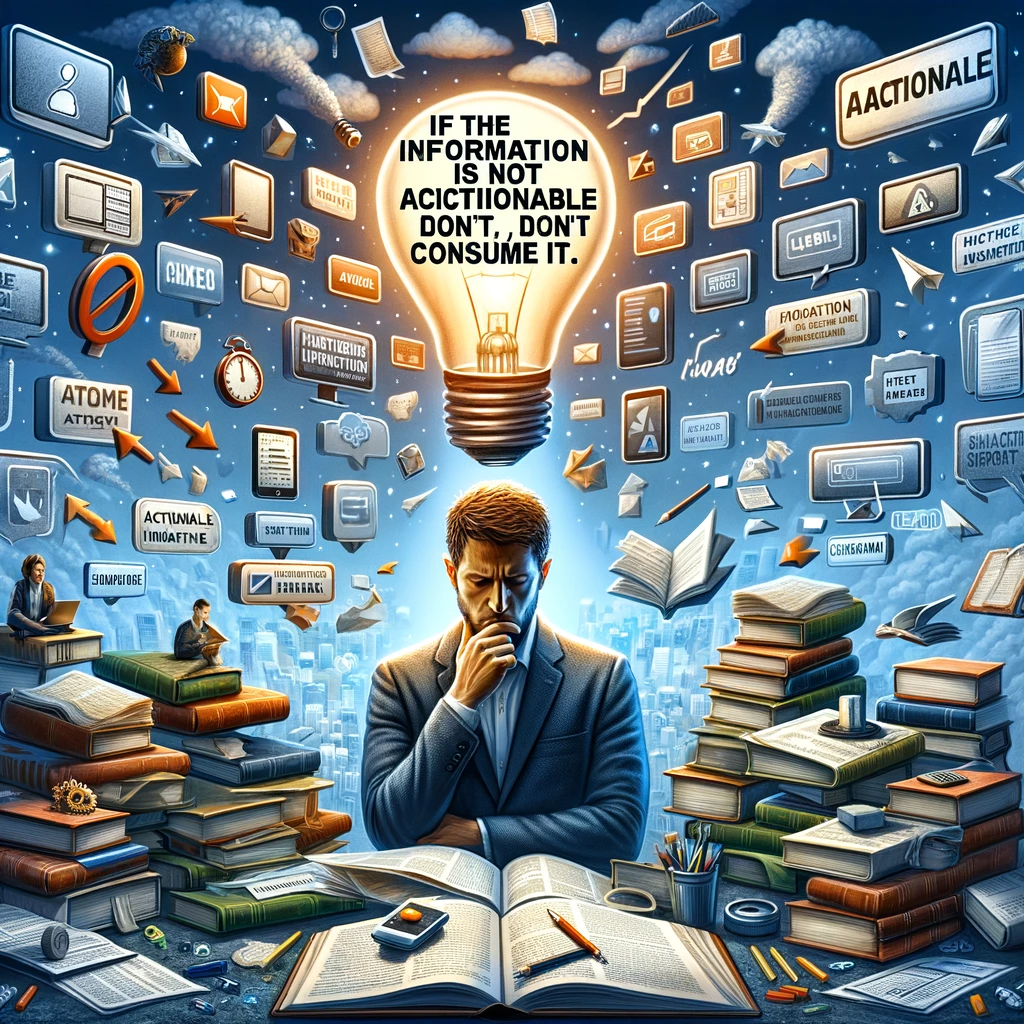
Most important part of Tim Ferris's IRA filter is the actionable filter. If the information is not actionable then avoid the consumption of it.
If you are talking to someone and you are interested in receiving the emotions they are giving you, then don't interrupt them. Or you have some other goal in mind that warrants listening to interlocutor then continue.
However, its unproductive to seek out information such as world daily news for the sake of being "Informed". That's just stealing time from learning something that can actually move you forward in life.
Note, it's ok to educate yourself cursorily to not appear ignorant for topics deemed central to society (by gaining very cursory knowledge quickly and stopping consumption). Such cursory knowledge of the world does not require to be up to date with even monthly news.

Quotes
“There are many things of which a wise man might wish to be ignorant” ― Ralph Waldo Emerson
I never watch the news and have bought one single newspaper in the last five years...In five years, I haven’t had a single problem due to this selective ignorance. - Tim-Ferris
For actionable information, I consume a maximum of one-third of one industry magazine (Response magazine) and one business magazine (Inc.) per month, for a grand total of approximately four hours/month. That’s it for results-oriented reading. - Tim-Ferris
Lifestyle design is based on massive action—output. Increased output necessitates decreased input.
Most information is time-consuming, negative, irrelevant to your goals, and outside of your influence.
I challenge you to look at whatever you read or watched today and tell me that it wasn’t at least two of the four. - Tim-Ferris
Develop the habit of asking yourself, “Will I definitely use this information for something immediate and important?” It’s not enough to use information for “something”—it needs to be immediate and important. If “no” on either count, don’t consume it. Information is useless if it is not applied to something important or if you will forget it before you have a chance to apply it. - Tim-Ferris
How to Grasp Specific Information
How to Grasp Specific Information: By Tim Ferris
IF task is "how-to" in nature:
THEN: only read autobiographical accounts of “how I did it”.
No speculators
No wannabes
What if you need to learn to do something your friends haven’t done? Like, say, sell a book to the world’s largest publisher as a first-time author? Funny you should ask. There are two approaches I used:
- I picked one book out of dozens based on reader reviews and the fact that the authors had actually done what I wanted to do. If the task is how-to in nature, I only read accounts that are “how I did it” and autobiographical. No speculators or wannabes are worth the time.
- Using the book to generate intelligent and specific questions, I contacted 10 of the top authors and agents in the world via e-mail and phone, with a response rate of 80%. I only read the sections of the book that were relevant to immediate next steps, which took less than two hours. To develop a template e-mail and call script took approximately four hours, and the actual e-mails and phone calls took less than an hour. This personal contact approach is not only more effective and more efficient than all-you-can-eat info buffets, it also provided me with the major league alliances and mentors necessary to sell this book. Rediscover the power of the forgotten skill called “talking.” It works. Once again, less is more. - Tim-Ferris
Important-Relevant-Actionable Information
Important & Relevant & Actionable (IRA Info) is:

What you repeatedly think, You become.
“Watch your thoughts; They become your words.
Watch your words; They become your actions.
Watch your actions; They become your habits.
Watch your habits; They become your character.
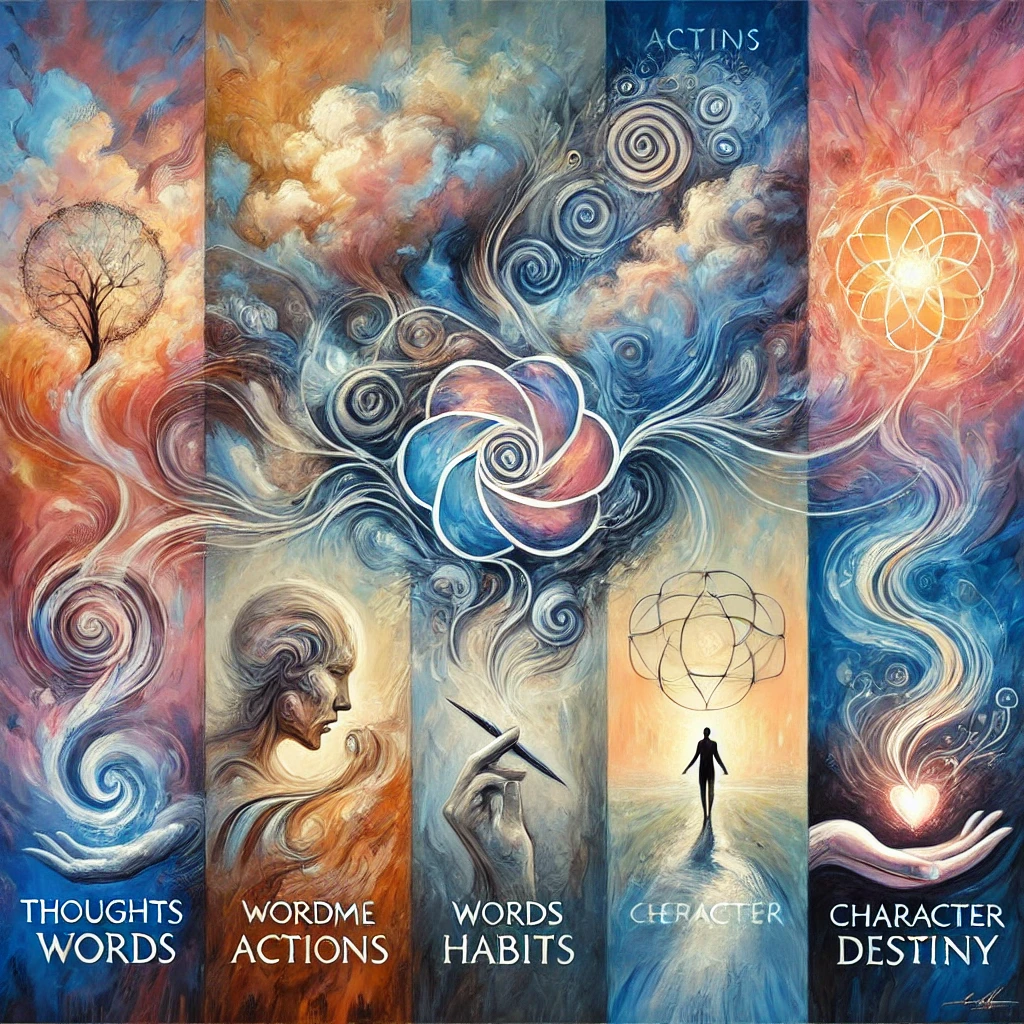
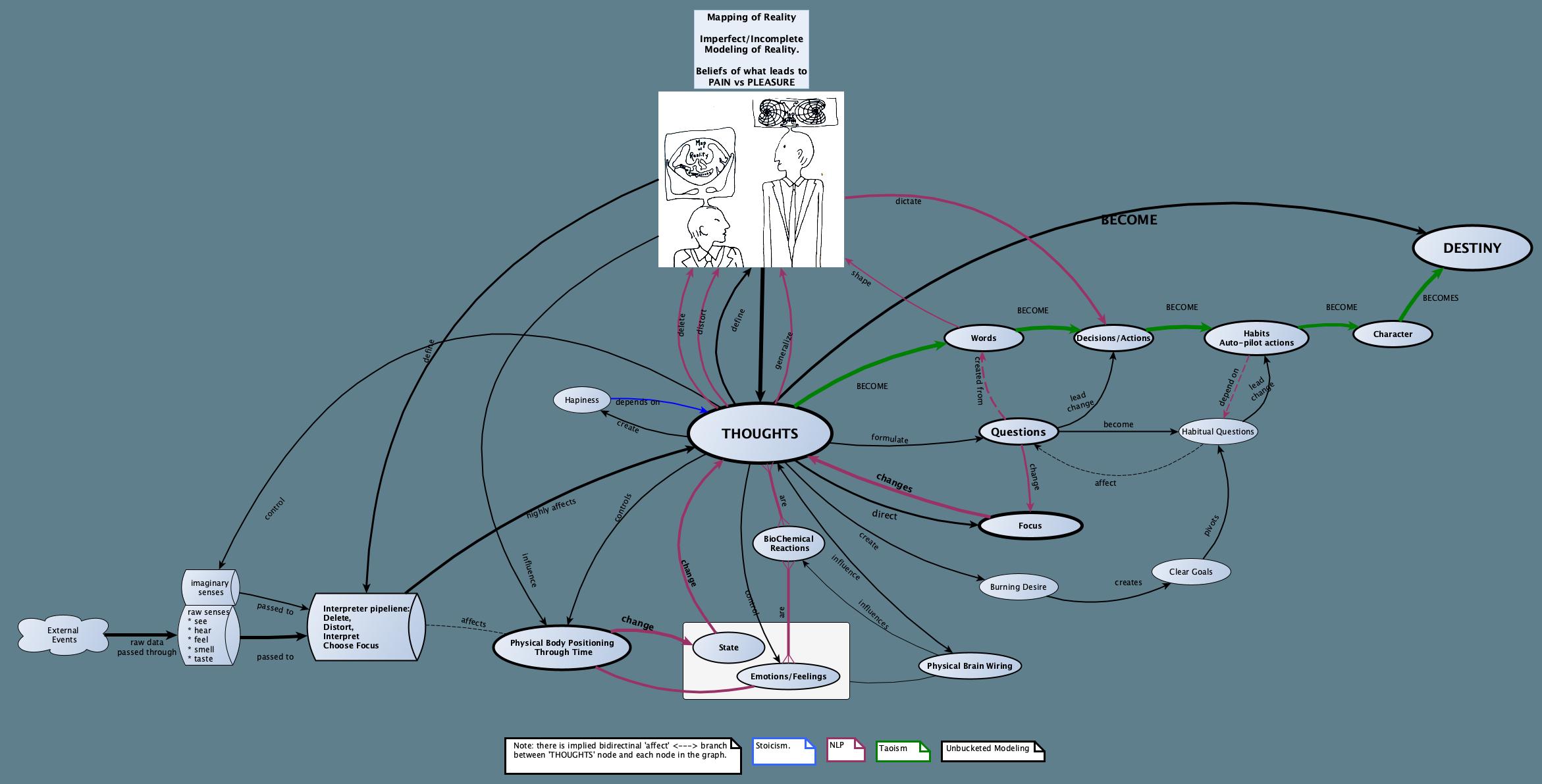
Children